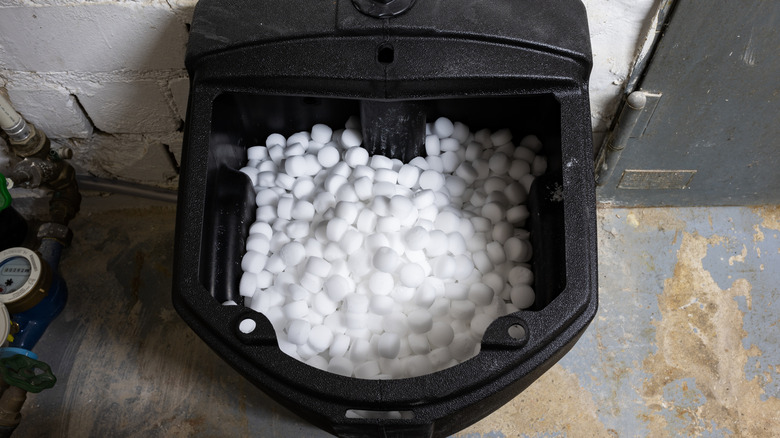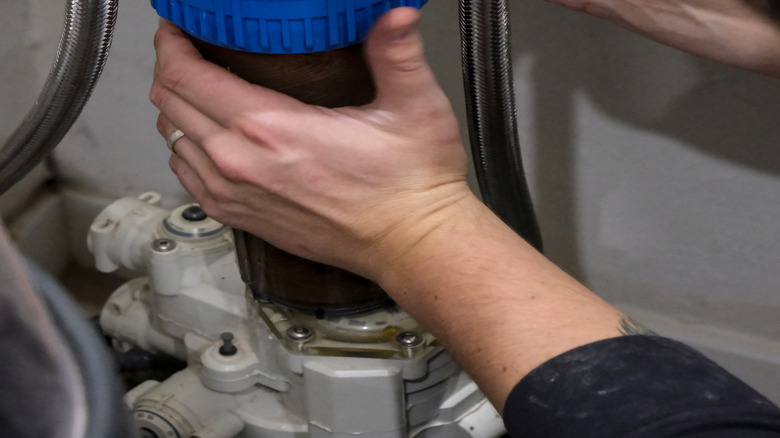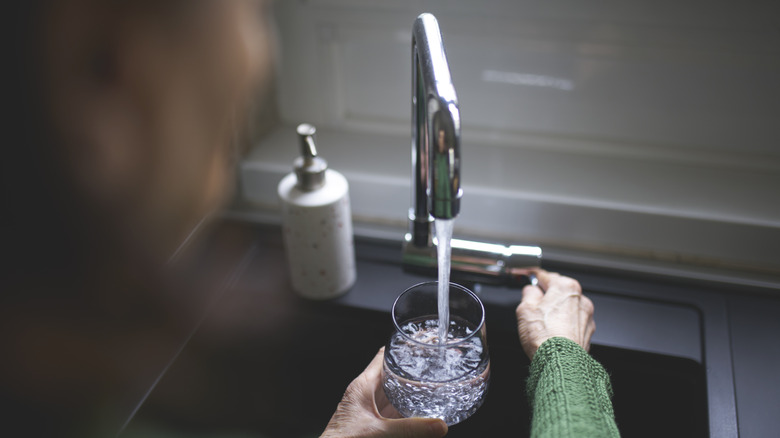Before Using A Water Softener In Your Home, Be Aware Of These Disadvantages
If you have hard water, you probably already know it. Many homes have "hard water" rather than "soft water" — meaning that the water from the tap has a high mineral content that includes calcium and magnesium. If you're using it in your home, you could experience certain issues when using it. The water from your faucet may taste worse, lead to more limescale buildup on appliances and pipes, and make soap harder to lather when showering. It can also affect the skin, leading to dryness and itchiness.
A water softener is a treatment device that eliminates hard water from the home, removing the excess minerals that characterize this type of water. Both soft and hard water are generally considered safe to drink, but many people believe that soft water tastes better. It will also be less likely to lead to corrosion or cause limescale to get into the water. With soft water, there's a reduction of scale buildup and residue on pipes, sinks, and appliances. Plus, detergent and soap work better.
Despite these benefits of using a water softener, there are disadvantages to using them and they fall short in several ways. You may want to reconsider installing one. For one, the costs of a water softener can be quite high. But perhaps most importantly, a water softener could negatively impact your health.
Counting the high costs of a water softener installation
While it's true that they offer some significant benefits, water softener installation costs can be pretty high. There are various types of water softeners available, and depending on the type you choose, the installation can cost anywhere from around $200 to as much as $6,000, though the average cost is somewhere around $1,500. This isn't a purchase that should be taken lightly.
In addition to the initial cost, water softeners will need to be maintained regularly. If you have a sodium ion water softener, for example, you'll need to ensure that you refill the resin beads regularly. Other types of systems will also need various types of maintenance to stay in working order. Professional inspections are also a good idea, but could cost between $50 and $150 each — not to mention the cost of any needed repairs that come up. While a water softener may save you money in the long run by reducing wear on your pipes and appliances, buying and installing one can cost quite a bit of upfront money as well.
How a water softener can affect your health (and the environment)
While there is some debate about the topic, the magnesium and calcium in hard water can be beneficial – especially if you have a hard time getting these minerals from your diet. Softening that water may not be the best choice for your health for that reason and others. Some water softeners work by adding sodium ions to the water, which replaces the magnesium and calcium in hard water. While this can improve the taste and eliminate other issues, an excessive amount of sodium can be problematic for some individuals.
Of course, sodium can be useful for helping maintain a good fluid balance and improving nerve and muscle function, but too much could be bad thing, potentially causing high blood pressure and increasing the risk of heart attack and stroke. This can cause potential health problems, especially for people who are on low-sodium diets. Similarly, some softeners use potassium chloride, and although safe for most, there are also negative effects of potassium chloride in water softening as well. Too much potassium can lead to problems with the kidneys or harm people who take certain medications.
In addition to your own health, water softeners may impact the environment. The increase in sodium can potentially damage aquatic ecosystems and wildlife by making its way into the environment and contaminating groundwater. You may want to reconsider installing a water softener if you want to avoid some of these potential disadvantages.


